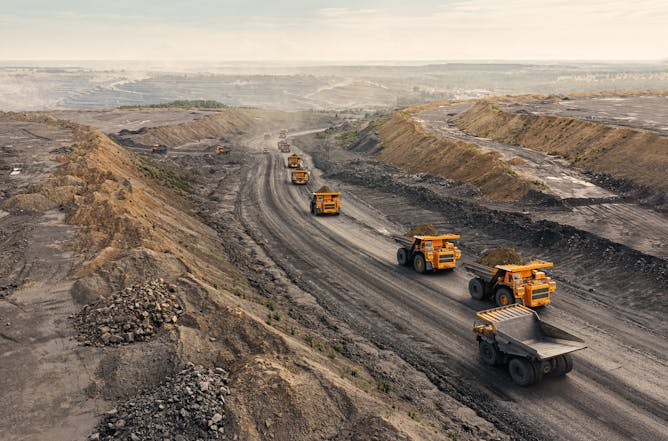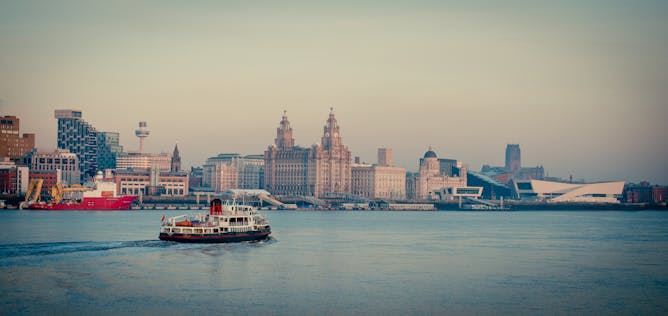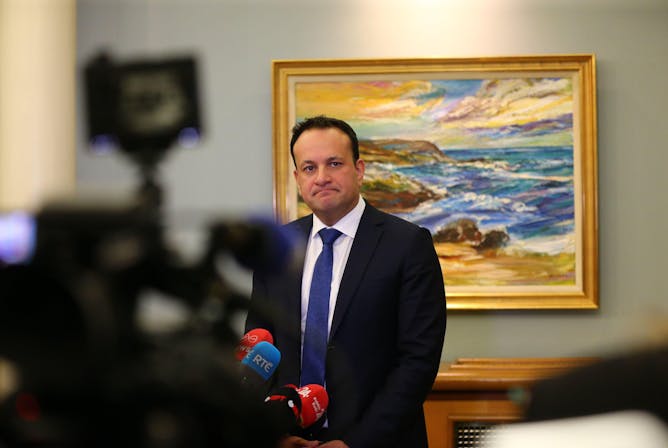|
For scientists used to thinking in thousands or millions of years, the scale and speed of recent changes have been hard to process. No one denies that over the past few centuries, and especially the past few decades, everything from species extinctions to increased atmospheric carbon will be recorded in rocks for geologists to pore over in the distant future. The argument is over whether this constitutes a new epoch, an “event”, or something else entirely.
The chair and vice-chair who disagreed with their colleagues, have written for us with two others from the Anthropocene Working Group to explain their reasoning and why they feel we should recognise a new epoch.
Meanwhile huge volumes of cancer-causing “forever chemicals” have been found flowing into the River Mersey. Patrick Byrne, a water pollution expert at Liverpool John Moores University investigates. And after the Irish government loses a crucial referendum on modernising the constitution, we look at what went wrong and why it matters.
|

|
Will de Freitas
Environment + Energy Editor
|
|

Mr. Tempter / shutterstock
Simon Turner, UCL; Colin Waters, University of Leicester; Jan Zalasiewicz, University of Leicester; Martin J. Head, Brock University
Geologists recently voted down a proposal to formally recognise the Anthropocene.
|

Heavy industry and dense urban populations both contribute to high levels of effluent containing toxic forever chemicals that don’t biodegrade.
Shaun Jeffers/Shutterstock
Patrick Byrne, Liverpool John Moores University
Huge amounts of PFAS come from wastewater treatment plants, new study finds.
|

Leo Varadkar reacts to the news that his government has lost both referendums.
Alamy/Damien Storan
Eoin Daly, University of Galway
Leo Varadkar has been criticised for expecting the public to vote in favour of adding vague language to the constitution.
|
Politics + Society
|
-
Carmel Hannan, University of Limerick
Marriage isn’t the most important factor for family or child wellbeing.
-
Tim Luckhurst, Durham University
Between 1939 and 1945, Pope Pius XII put the interests of the Catholic Church in Germany before the fate of European Jews.
-
Alan Greene, University of Birmingham
The laws around protest have rarely been tougher – so we have to wonder why the government is seeking more power by redefining what extremism means.
-
Amalendu Misra, Lancaster University
Haiti is descending into anarchy, causing the gang leader behind the violence to emerge as the country’s most powerful leader.
-
Carlo Aldrovandi, Trinity College Dublin
A major ground assault on Rafah in the southern Gaza Strip during one of Islam’s most important months could result in a major escalation of violence.
-
Joshua Habgood-Coote, University of Leeds
Catherine is far from the first royal to experiment with photo editing.
|
|
Arts + Culture
|
-
Nathan Bossoh, University of Southampton
The British Museum is celebrating recovered items in its new exhibition, but it continues to refuse to return historically looted items in its own collection to countries of origin.
-
Blane Savage, University of the West of Scotland
The sculpture was an early pioneer of pop art and his approach to collage across mediums was revolutionary,
-
Jeremy Hicks, Queen Mary University of London
Artdocfest 2024 was a showcase for films that show the reality of the war in Ukraine, and the spread of Russian politics to neighbouring countries.
|
|
Health
|
-
Adam Taylor, Lancaster University
Inserting objects into the urethra might sound like torture but for some it’s a sexually pleasurable act. Here’s what you need to know about urethral sounding.
-
Sally King, King's College London
No one seems to be taught about the function of periods. It’s time to take menstrual literacy seriously.
-
Zoe Brookes, University of Plymouth
‘Tongue scraping’ has long been a part of daily hygiene routines in parts of Europe, India, South America and Africa.
|
|
Science + Technology
|
-
Mathias Disney, UCL
Their incredible resilience means they are becoming part of the UK landscape.
-
Christian Ginski, University of Galway
Astronomers have spotted a surprisingly diverse set of planet-forming disks.
|
|
Business + Economy
|
-
Andy Lymer, Aston University
Everything you need to know about income tax, national insurance and more.
-
Andrew Urquhart, University of Reading
Often dismissed as a libertarian ponzi scheme, why has crypto bounced back yet again?
|
|
|
|
| |
|
|
|
|
| |
| |
| |
| |
| |
|
|